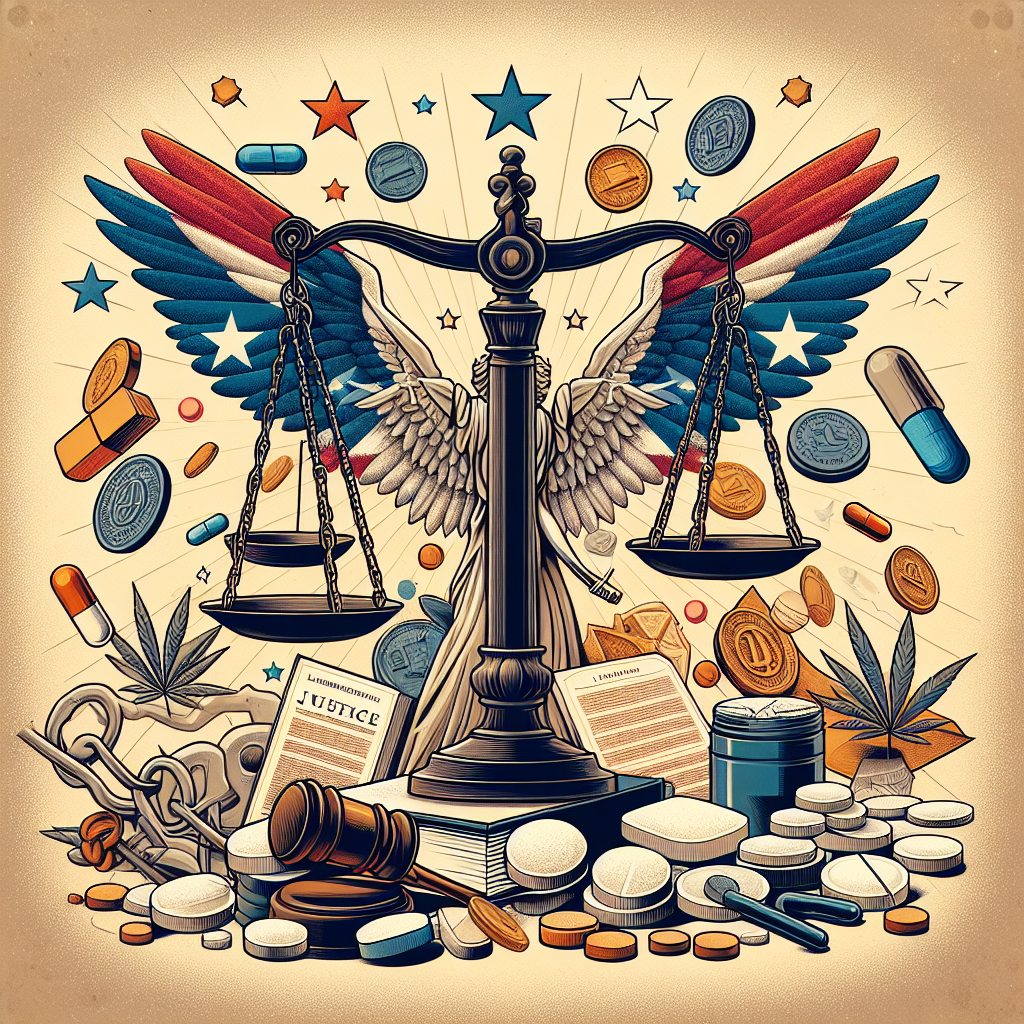Libertarianism and the Criminalization of Drugs: Lessons from History
Introduction to Libertarianism
Libertarianism is a political philosophy that champions individual freedom, personal responsibility, and minimal government intervention. At its core, libertarianism advocates for the idea that individuals should have the right to make choices about their own lives, provided those choices do not infringe upon the rights of others. This principle stretches into various aspects of society, including economic policies, personal conduct, and notably, drug use.
The Historical Context of Drug Criminalization
The criminalization of drugs in the United States can be traced back to the early 20th century. Factors such as racial prejudices, moral panic, and socio-political dynamics played significant roles in shaping drug policies. The Harrison Narcotics Tax Act of 1914 marked the beginning of federal drug regulation, targeting opiates and cocaine. This initial step laid the groundwork for drug prohibition policies that would evolve into a far-reaching criminalization scheme.
The War on Drugs: A Libertarian Perspective
The War on Drugs, initiated in the 1970s, represents one of the most significant and controversial federal policies in U.S. history. From a libertarian viewpoint, the War on Drugs is a prime example of government overreach and a failure to respect individual liberties. The extensive law enforcement measures, including the criminalization of personal drug use, have led to a myriad of social issues including incarceration, racial disparity, and loss of personal autonomy.
-
Incarceration Rates: Despite predictions that criminalization would reduce drug use, the opposite has occurred. The U.S. holds one of the highest incarceration rates globally, largely driven by non-violent drug offenses. Libertarians argue that this not only violates personal freedoms but burdens taxpayers and society at large.
- Racial Disparities: Drug laws have disproportionately affected minorities, inviting criticism of systemic racism. Libertarians advocate for reform, emphasizing that drug use should not be a criminal offense and suggesting that public health approaches would be far more effective.
Lessons from Portugal: A Radical Shift in Policy
In 2001, Portugal decriminalized all drugs, prioritizing treatment over punishment. This radical shift has garnered international attention, producing remarkable outcomes that libertarians use to bolster their argument for reform.
Public Health Model Versus Criminalization
Portugal’s public health model emphasizes care rather than criminal consequences. Substance use is treated as a health issue, leading to:
- Reduced Overdose Deaths: Portugal has seen a significant decline in overdose deaths since decriminalization.
- Lower HIV Rates: There has been a dramatic decrease in new HIV infections among drug users, attributed to increased access to health services.
- Overall Drug Use: Studies indicate that drug use did not rise significantly post-decriminalization, challenging the notion that criminalization deters use.
The Economic Argument for Decriminalization
Libertarians often advocate for drug decriminalization based on economic arguments. The financial burden of the War on Drugs—expenditures for law enforcement, legal proceedings, and incarceration—can be staggering.
Potential Economic Benefits
-
Tax Revenue: Legalizing and regulating drugs could generate substantial tax revenue. States that have embraced cannabis legalization, for instance, have seen significant financial benefits.
-
Resource Allocation: Law enforcement resources could be redirected towards combating violent crime rather than targeting non-violent drug users.
- Job Creation: A legal framework surrounding drug production and sale could create jobs and stimulate local economies.
The Path Forward: Embracing a Libertarian Approach
The lessons learned from history and contemporary case studies suggest an urgent need for reevaluation of drug policies. Libertarians propose a multi-faceted approach to reform, including:
-
Decriminalization: Moving away from punitive measures to allow personal choice and responsibility.
-
Regulation: Implementing a regulated framework for drug sales to ensure safety and quality.
- Education and Prevention: Focusing on informed choices through community-based education programs rather than criminal penalties.
Conclusion: A Call for Change
History teaches us that drug criminalization has not achieved its intended goals—instead, it has perpetuated cycles of harm. By embracing libertarian principles of personal freedom and responsibility, society can pave the way for smarter, more humane drug policies. The journey toward reform may be fraught with challenges, but the lessons of the past offer a compelling argument for change—a shift that honors individual autonomy and focuses on public health rather than punishment.
Final Thoughts
The ongoing discussion about drug policy reform resonates well beyond the United States. As more countries grapple with the implications of drug criminalization, the libertarian perspective can provide valuable insights into crafting a more ethical and effective approach to drug-related issues worldwide. The time for change is now, as we look to historical lessons to guide us toward a freer and healthier society.
Share this content:












Post Comment